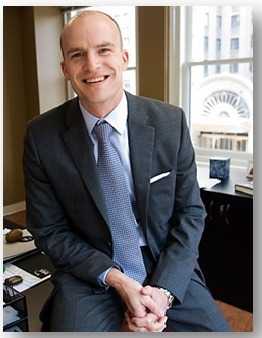If this blog is beginning to remind you of MSNBC or Fox News commentaries, please accept my apology. Since December, the topic of politics and radio has become strangely regular in this space. That’s because radio has simply not benefitted proportionately during election campaigns – which pretty much means all the time. Whether it’s big races or local initiatives, it seems like there’s always an election or a ballot issue stirring up emotion and opinion.
 Somehow, radio fell out of favor with political strategists – or maybe it was never well-positioned to begin with. Back in December when Edison Research hosted a panel featuring two politicos who didn’t believe in radio, we pointed out how Clear Channel has hired Nathan Daschle as its EVP for political strategy (pictured).
Somehow, radio fell out of favor with political strategists – or maybe it was never well-positioned to begin with. Back in December when Edison Research hosted a panel featuring two politicos who didn’t believe in radio, we pointed out how Clear Channel has hired Nathan Daschle as its EVP for political strategy (pictured).
In a recent trade interview, Daschle acknowledged that radio’s piece of political ad spending has slipped from 10% a decade ago to more like 6% in recent campaign races. Trying to put a positive spin on it (hey, it’s a political conversation), Daschle notes that “Our share is dwindling, but the good news though is the overall pie continues to grow.”
Part of the issue is that Talk Radio’s overall problems now leak into political spending. You cannot reach “undecideds” when you advertise to consumers who are already so firmly entrenched in their attitudes and stances. It’s the downside of dogma, and that’s what the Talk Radio format is all about.
So enter Pandora, which Daschle admits has “convinced people in politics that music can be a great venue for political activism.” Isn’t this something that broadcast radio should have done back in the ‘60s? Or ‘70s? Or ‘80s? Well, you get the idea – somehow the industry has not made the case, but Pandora apparently has.
So let’s also look at their self-serving agenda. Of course, Pandora is touting music channels as great vehicles to reach non-committed voters. That’s all they have.
Daschle is right to point to music radio as a great reservoir for reaching these “undecideds,” but he’s also missing one of the key elements many of these stations have over Pandora – trusted personalities.
Over the past decade or so, the ways in which many consumers get their news has changed. While my journalism professors back at the University of Michigan might cringe, the fact is that millions of Americans learn about what’s going on politically from pundits like Jon Stewart and Stephen Colbert, along with comedy shows like Saturday Night Live.
They’re not watching Meet the Press or reading The New York Times or Vanity Fair.
 And the same is true in radio. I remember moderating focus groups over the years for WRIF when respondent after respondent told us their main new source wasn’t The Detroit News or Channel 4, but The Drew & Mike Show with news ace Trudi Daniels (pictured).
And the same is true in radio. I remember moderating focus groups over the years for WRIF when respondent after respondent told us their main new source wasn’t The Detroit News or Channel 4, but The Drew & Mike Show with news ace Trudi Daniels (pictured).
That’s true in market after market where funny, satirical personality shows are speaking for hundreds of thousands of consumers with their political wit, humor, and parodies.
Every politician in America ought to be thinking about the value of music/personality radio in upcoming campaigns. In markets and at stations that have invested in local DJs and shows, there is no better environment to efficiently and effectively reach prospective voters. As we mentioned earlier this month, the Obama Administration’s use of radio – and specifically, personality radio – to energize Affordable Care Act signups has to be a strong piece of evidence that music radio stations work.
But the real lesson from that effort was connecting with key personalities who mean something to their communities. If Daschle, Clear Channel, and other smart broadcasters don’t use that “steel sword,” they’ll be leaving money on the table. It’s interesting that his interview preceded the release of the new Clear Channel/USC study that points to personalities as radio’s “secret sauce.” Clearly, there’s ammunition that positions radio as uniquely qualified to play a bigger role in the political arena.
Pandora has no personality. It is just a collection of songs, no more influential than an iPod Nano.
For radio, that’s the political edge.
- Media And Technology In 2025: Believe It Or Not! - April 18, 2025
- In Radio, You Just Never Know - April 17, 2025
- The Secret To Making A Great Podcast (And Great Radio) - April 16, 2025




With the political divide closer than ever, elections and issues will be decided more and more by the undecided. Place your spots on talk radio and you’re preaching to the choir. Place a relatable, direct message in a spot set on an AC station and you just may get heard and get elected.
Thanks, Marty – the monolithic philosophy that has become talk radio on the left or the right limits its effectiveness. As you point out, a great music station with local roots and context can provide real benefits to political campaigns.